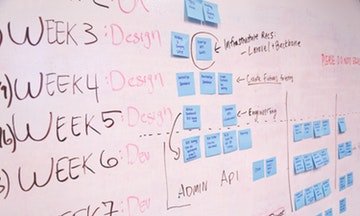Project Coordinator Training Course
| Date | Venue | Duration | Fees | |
|---|---|---|---|---|
| 06 May - 10 May, 2024 | Dubai | 5 Days | $4750 | Register |
| 10 Jun - 14 Jun, 2024 | Dubai | 5 Days | $4750 | Register |
| 23 Jun - 27 Jun, 2024 | Riyadh | 5 Days | $4950 | Register |
| 15 Jul - 19 Jul, 2024 | Dubai | 5 Days | $4750 | Register |
| 12 Aug - 16 Aug, 2024 | Kampala | 5 Days | $4950 | Register |
| 26 Aug - 30 Aug, 2024 | Dubai | 5 Days | $4750 | Register |
| 02 Sep - 06 Sep, 2024 | Dubai | 5 Days | $4750 | Register |
| 23 Sep - 27 Sep, 2024 | Seoul | 5 Days | $5350 | Register |
| 14 Oct - 18 Oct, 2024 | Dubai | 5 Days | $4750 | Register |
| 16 Oct - 18 Oct, 2024 | Istanbul | 3 Days | $4475 | Register |
| 04 Nov - 08 Nov, 2024 | Dubai | 5 Days | $4750 | Register |
| 09 Dec - 13 Dec, 2024 | Nairobi | 5 Days | $4950 | Register |
| 23 Dec - 27 Dec, 2024 | Dubai | 5 Days | $4750 | Register |
Course Overview
Projects that typically go beyond budgets, timelines and even fail, are not due to a lack of expertise, from those managing projects, but mainly because of inadequate coordination of project activities, lack of integration and communication amongst stakeholders, and loss of control over contractors/vendors. Project coordination is the day-to-day management of activities within the project. The purpose of synchronizing projects is to enable a smooth flow of the workflow of your tasks.
What is the role of a Project Coordinator?
As a project coordinator, you typically support the project manager, to develop project strategies and organise tasks as required. The typical day-to-day duties of a project coordinator involve
- Scheduling and organising projects,
- Maintaining records,
- Communicating with team members and stakeholders, and
- Performing administrative duties
The key goal of project coordinators is to ensure that all projects are well-organised and get completed on time and within the budget. This requires developing multitasking skills, attention to detail, and strong communication skills. Project coordinators assist the project manager by coordinating tasks, and where require delegating tasks to team members, and other departments. Effective project coordination can enhance your team’s performance in the workplace.
How do I succeed as a project coordinator?
Enhancing your coordinating skills can be of value to any career or position that you may wish to pursue. Employers typically look for solid project management and coordination qualifications in applicants, as this experience proves key capabilities in communication, organisation, and troubleshooting.
This Zoe training course aims to prepare one to be a Project Coordinator who must know how to do it when to do it and to do it right. This course provides the knowledge and expertise to execute and coordinate projects effectively and efficiently, using proven skills. The course leads the participants through the essential skills for project management coordination, to give participants confidence in implementing their new skills to increase the projects’ success.
Course Objectives
- Demonstrate an advanced understanding of key concepts, principles, and practice of project planning, project coordination, and project controls
- Describe how to define a project by understanding the project goal, identifying the priorities, and adequately planning the time, cost, and resources needed for the project
- Understand the key aspects of Project communication and be able to effectively manage stakeholders
- Detail a project plan by identifying the scope, task dependencies, schedule, critical path, and risks
- Understand the various stages of a project life cycle and the related activities in each stage
- Understand the roles and responsibilities within a project and the different levels of empowerment concerning requirements and the business case
- Identify the critical factors and stakeholders to project success
- Develop the required skillset and capabilities to support successful business change programs within your organisation
- Develop the skills to identify the most relevant project coordination methodology to use, given the project objectives, the degrees of uncertainty, and the constraints
- Practice effective project planning, coordination, communication, problem-solving techniques, and stakeholder management through real-world case studies and simulations
Training Methodology
This collaborative certification course will comprise the following training methods:
- Lectures
- Seminars & Presentations
- Group Discussions
- Assignments
- Case Studies & Functional Exercises
Like all Zoe’s acclaimed courses, this Certified Project Coordinator Course also follows the ‘Do-Review-Learn-Apply’ model.
Organisational Benefits
The organisation will derive the following benefits, from the professionals who take this course:
- Professionals who manage projects effectively, enabling the organisation to deliver projects promptly
- A project coordination approach that drives a better-quality output and higher productivity
- Integration of project progress, resources, and risk strategies into a dynamic, manageable plan
- Informal training of other employees on project management tools and techniques for greater project delivery and efficiency
- Maintain a continuous improvement on project performance and control risks against project costs and delivery
- An ability to produce clear and concise project progress reports
- Better risk assessment and management, and timely mitigation of risks to avoid projects from failing
- Effective management and coordination of project teams, and stakeholders
- Better decision-making for the organisation based on key insights on data, information & analytics
- Control of project documentation
- The capture of valuable project lessons that can be used to define and improve project management practices within the organisation
Personal Benefits
Professionals attending this course will benefit through the following ways:
- Develop a deep understanding of the practices and skills needed to succeed in a project coordination role
- Establish the foundational knowledge of the philosophy, the approach, and the methodology of Project Management
- Develop greater skills and understanding to effectively manage Projects, Stakeholder collaborations, and communications within the organisation
- Increase the experience and confidence to train other professionals and project team members, on industrial best practices
- Develop better skillsets and capabilities to introduce advanced processes and concepts, and to be able to successfully handle the role, with the least effort
- Enhance their perspective and foresight to effectively assess future risks
- Develop effective decision making and strategic skills to analyse data and information available, and then advise on the best-suited decisions
- Improve negotiation and communication skills to build rapport and facilitate a shift in mindset within the project teams
- Develop and document project documentation efficiently throughout the various phases of a project
- Stay up to date on best practices and industry trends, and upcoming changes in the new age
- Establish a major step in your career developing the skills, techniques, and confidence to work effectively in a project management environment.
Who Should Attend?
- Managers who wish to understand the fundamentals of Project Management, and Agile Principles, and learn about the industry trends and best practices
- Practising Project Manager, and Project Coordinators who wish to enhance their knowledge, and modern skills
- New project managers that will benefit from early exposure to Project Coordination methodology and principles
- Project Managers, Product Managers, and Product owners wishing to understand project coordination fundamentals, and aspects of the role
- Project / Agile/Scrum team members who wish to pursue a career in Project coordination and/or project management
- Any Individuals/professionals wishing to pursue the Project Coordination certificate, and move on to achieving Project Management certification
Course Outline
Module 1: Introduction to Project Management
- Introduction to Project Management
- Project management framework Characteristics of Projects
- Definition of a Project Manager
- Roles and Functions of a Project Manager
- Project Management Skills
- Project Alignment with Business/Corporate Strategy
- Stages of Project Lifecycle
- Project vs Program vs Portfolio Management
Module 2: Project Management Life Cycle
- Project management processes
- Initiating
- Planning
- Executing
- Monitoring and Controlling
- Project Closure
Module 3: Developing the Project Charter
- Defining a project
- Project Objectives / Goals
- Project Scoping
- Team Selection
- Team Roles and Responsibilities
- Project Monitoring & Evaluation
- Develop Project Charter
Module 4: Project Stakeholder Management
- Identification of Project Stakeholders
- Stakeholder matrix
- Communication Plan
- Key Project Communication Skills
Module 5: Understanding Organisational Structures
- Organisational Structures
- Functional Organisation
- Weak Matrix Organisation
- Strong Matrix Organisation
- Balanced Matrix Organisation
- Projectized Organisation
- Organisational Structure Influences on Projects
Module 6: Project Scheduling, Gantt Charts, and Critical Path Analysis
- Work breakdown structure
- Define Activities
- Sequence Activities
- Project Scheduling
- MS Project vs Excel Gantt Chart
- Sequencing project tasks
- Add resources to your Gantt
- Add time and cost to your Gantt
- Dependencies among project activities
- Project duration and evaluation of critical path
- Perform Integrated Change Control
Module 7: Estimating Project Costs
- Plan Cost Management
- Estimate Costs
- Preparing Project Budgets
- Control Costs
Module 8: Resource Allocation and Resource Smoothing
- Plan Human Resource Management
- Acquire Project Team
- Develop Project Team
- Resource Mobilization
- Project Procurement and Management
Module 9: Project Progress Reporting and Management
- Project Management Reporting
- Earned Value (EV)
- Key Earned Value Terminology
- Combining Schedule and Costs
- Project Status Report
- Schedule Variance (SV)
- Cost Variance (CV)
- Schedule Performance Index (SPI)
- SPI Run Chart
- Cost Performance Index (CPI)
- Estimated Cost at Completion
- Estimated Duration at Completion
Module 10: Risk Management
- Definitions – What is Risk?
- Risk Management Process
- Risk Management Model
- Identifying Potential Risk Events
- Qualitative and Semi-Quantitative Risk Analysis Techniques
- Prioritize and schedule project risks
- Risk Register
- Probability and Impact Matrix
- Risk Response Planning
- Strategies for Risk Response Planning
- Contingency Plan
Module 11: Project Quality Management
- What is Project Quality Management?
- Quality Planning
- Quality Management
- Perform Quality Assurance
- Perform Quality Control
- Cause-and-Effect Diagram
- Control Charts
- Flowcharting
- Pareto Diagram
- Run Chart
Module 12: Wrapping Up the Project
- Develop Documentation
- Develop control Plan
- Handover and sign-off
- Lessons Learned
- Tie up loose ends
Module 13: Project Failure and Critical Success Factors
- Reasons for Project Failure
- Measuring Project Success
- Benefits Realization
- Industry Trends











